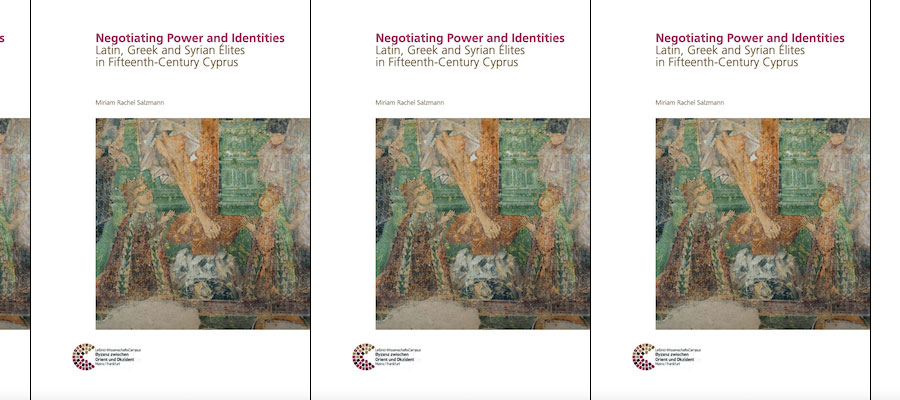Miriam Rachel Salzmann. Negotiating Power and Identities: Latin, Greek and Syrian Élites in Fifteenth-Century Cyprus. Byzanz zwischen Orient und Okzident, volume 25. Römisch-Germanischen Zentralmuseums, 2021. [Open Access. Propylaeum, 2021. DOI: https://doi.org/10.11588/propylaeum.912]
From Römisch-Germanischen Zentralmuseums
This study traces the development of Latin, Greek and Oriental Christian aristocratic groups and their interaction in fifteenth-century Cyprus. Since 1192, the island was under the rule of the Lusignan Crusader dynasty, which had introduced a nobility of Crusader families. However, due to various moments of political crisis from the end of the fourteenth century on, autochthonous Greeks and Oriental Christians (so-called Syrians) rose high in the state administration and challenged the power balance. This study explores their social mobility as well as the fate of the noble Crusaders who had to contend with the newcomers, and the consequences for the relationship between these groups. Moreover, it asks how the aristocrats constructed their identities with respect to social standing, ethnicity and religion. This analysis of the interplay between social change and identity construction permits a new, broad perspective on the Cypriot aristocracies during the fifteenth century.
